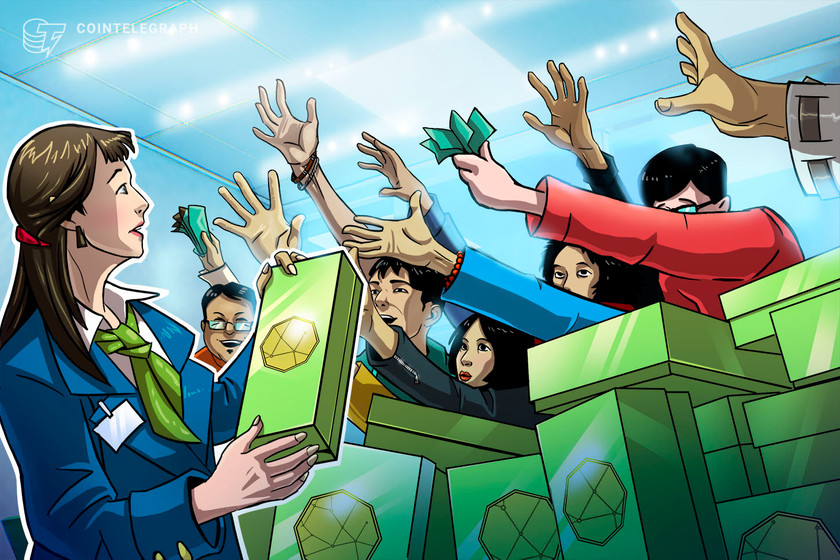How to create an ERC token without coding, explained
While coins exist on their own blockchain, multiple tokens can be created on an existing chain saving the developer time and money.
At a foundational level, coins and tokens offer some similarities in representing value and enabling payment processing: coins can be swapped for tokens, with the reverse also holding true. Where differences become apparent is in their utility. Most cryptocurrency coins typically operate as a native coin on the blockchain as a store of value, while tokens typically exist for use on a decentralized application (DApp). Since tokens are created on existing blockchains, many project tokens may exist within the same ecosystem, most of which can be migrated as needs change.
Differences extend further into development, where users looking to create a coin will need to copy an entire blockchain. In contrast, those looking at token development will start with creating a smart contract. The benefit is that since the developer doesn’t need to spend time deploying their own blockchain and ensuring it’s secure, and can therefore save time and resources.
Cryptocurrency tokens can hold value like a coin or provide added utility through fundraising, voting (or governance), points for a loyalty program or as a part of a charity program.
Cryptocurrency tokens can vary in usage; while some exist as an investment vehicle like Dogecoin (DOGE), others allow users to exchange between tokens on platforms like Ethereum (ETH). Other tokens can be used as a fundraising opportunity for a new product or service your team might decide to offer. In parallel to an initial public offering, releasing a token can be done through an Initial Coin Offering or ICO with cryptocurrency tokens. Other use cases include representation as shares in a company, definition for proof of ownership, a ticket for entrance or usage of a DApp, a voting tool, a component of a loyalty program or being deployed as a part of a charity fundraising.
Tokenization has become the standard for organizations and teams considering fundraising opportunities or creating more active communities.
Tokenization is becoming an increasingly popular concept, referring to assigning a token to anything of value in the real world. With many businesses, teams and individuals already looking to digitize their offerings for simplified transactions, tokens are likely to become a global standard for conducting transactions. In addition to remaining ahead of the curve, tokens themselves offer users several benefits, including the ability to incentivize users to participate more actively in a given decentralized finance (DeFi) project. Whether this is a business or a cause, token holders can easily buy into a mission that aligns with their own goals and earn rewards in response to their involvement.
Ethereum remains at the forefront of DeFi, giving users access to a growing community with diverse functionality.
To date, Ethereum and Solana (SOL) continue to be the most popular blockchains depending on a user’s needs. That said, the ERC-20 standard on Ethereum has remained the dominant pathway for creating new tokens since the beginning, making it the primary choice for crowdfunding and ICO use cases. The standard itself provides a simple interface, with the ability to be used on multiple applications. As a leader in DApp development and an ecosystem to many well-known platforms, Ethereum continues to be at the forefront of DeFi, making it a clear choice with extensive documentation for those creating their first token.
Creating a token requires deploying a smart contract which is simplified with modern platforms that enable users to fill in details of their proposed token without coding or technical knowledge.
Traditionally, creating a token would require a creator to outline token properties, including the supply, name, and number of auxiliary functions. This step would be followed by deploying a smart contract, QA testing and blockchain deployment. While users would traditionally require a basic understanding of coding, newer platforms simplify the process to enable anyone to deploy a token of their own.
One of these platforms is Student Coin Terminal which allows users to create a custom ERC-20 token. Users can start the token creation process by connecting their Ethereum wallet (selecting between Wallet Connect or MetaMask) or create one by selecting the “Get wallet” button. They will then need to add enough funds to pay for contract deployment and set up their tokens. With the foundation in place, users can set up their tokens through a simplified format, enabling users to complete a basic form.
With modern platforms like Student Coin, any user can create a token of their own despite having limited or no technical knowledge.
Disclaimer. Cointelegraph does not endorse any content or product on this page. While we aim at providing you with all important information that we could obtain, readers should do their own research before taking any actions related to the company and carry full responsibility for their decisions, nor can this article be considered as investment advice.









